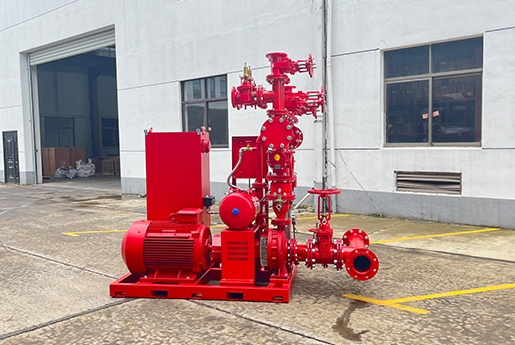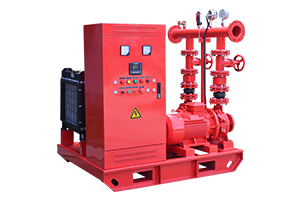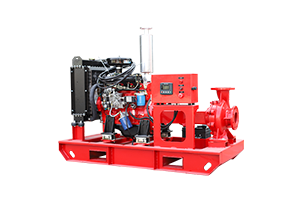-
 Oct 16, 2024Can Fire Pumps Be Used in Underground Water Systems?Yes, fire pumps can be used in underground water systems. In fact, they are commonly integrated into such systems to boost water pressure when the water supply is drawn from underground sources like wells, reservoirs, or storage tanks. The fire pump ensures that sufficient water pressure is delivered to the sprinkler systems or fire hydrants during a fire emergency.
Oct 16, 2024Can Fire Pumps Be Used in Underground Water Systems?Yes, fire pumps can be used in underground water systems. In fact, they are commonly integrated into such systems to boost water pressure when the water supply is drawn from underground sources like wells, reservoirs, or storage tanks. The fire pump ensures that sufficient water pressure is delivered to the sprinkler systems or fire hydrants during a fire emergency.
View details -
 Oct 15, 2024What is the Purpose of a Fire Pump Churn Test?A fire pump churn test (also called a no-flow test) is conducted to verify that a fire pump system is functioning properly under zero-flow conditions. The key purposes of a churn test include:
Oct 15, 2024What is the Purpose of a Fire Pump Churn Test?A fire pump churn test (also called a no-flow test) is conducted to verify that a fire pump system is functioning properly under zero-flow conditions. The key purposes of a churn test include:
View details -
 Oct 15, 2024Can Fire Pumps Be Used in Industrial Applications?Yes, fire pumps can definitely be used in industrial applications. In fact, they are critical in many industries where fire protection is essential. Here's how fire pumps are commonly used in industrial settings:
Oct 15, 2024Can Fire Pumps Be Used in Industrial Applications?Yes, fire pumps can definitely be used in industrial applications. In fact, they are critical in many industries where fire protection is essential. Here's how fire pumps are commonly used in industrial settings:
View details -
 Oct 14, 2024Do Fire Pumps Require Regular Calibration?Fire pumps typically do not require regular calibration in the same sense that measuring instruments do. However, they do require routine maintenance, testing, and inspections to ensure they operate efficiently and reliably during an emergency. These activities help identify issues like wear, pressure loss, or performance decline over time.
Oct 14, 2024Do Fire Pumps Require Regular Calibration?Fire pumps typically do not require regular calibration in the same sense that measuring instruments do. However, they do require routine maintenance, testing, and inspections to ensure they operate efficiently and reliably during an emergency. These activities help identify issues like wear, pressure loss, or performance decline over time.
View details -
 Oct 14, 20245 Key Indicators of Fire Pump EfficiencyTo evaluate the efficiency of a fire pump, several key performance indicators (KPIs) can be monitored. Here are five critical indicators of fire pump efficiency:
Oct 14, 20245 Key Indicators of Fire Pump EfficiencyTo evaluate the efficiency of a fire pump, several key performance indicators (KPIs) can be monitored. Here are five critical indicators of fire pump efficiency:
View details -
 Oct 12, 2024Do Fire Pumps Require Regular Calibration?Fire pumps do not typically require "calibration" in the same way as measuring instruments or precision equipment. However, they do require regular maintenance and testing to ensure they perform optimally during an emergency. Here's what is typically involved in the routine checks for fire pumps:View details
Oct 12, 2024Do Fire Pumps Require Regular Calibration?Fire pumps do not typically require "calibration" in the same way as measuring instruments or precision equipment. However, they do require regular maintenance and testing to ensure they perform optimally during an emergency. Here's what is typically involved in the routine checks for fire pumps:View details






